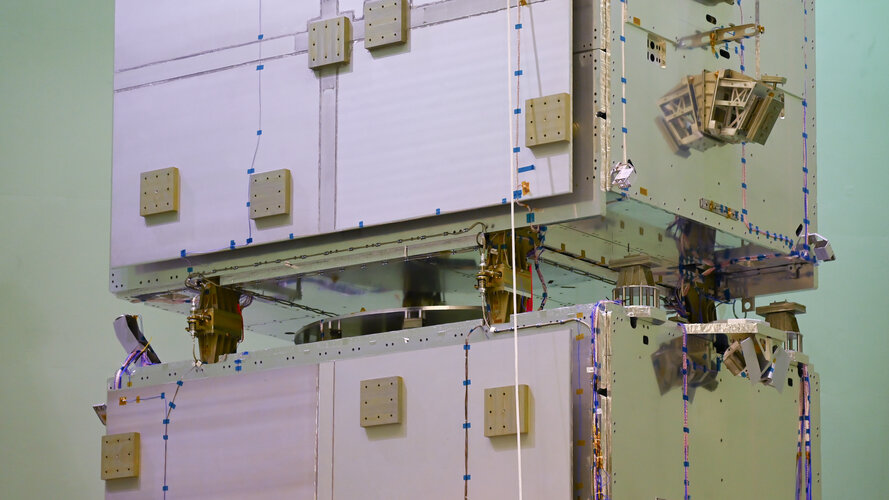
Europe’s Galileo is the world’s most precise satellite navigation system, providing metre-level accuracy to more than four billion users worldwide. It currently comprises 28 satellites in orbit and 10 more are due to be launched, after which a new generation of satellites, the Galileo Second Generation or G2, will revolutionise the fleet with enhanced capabilities.
“G2 satellites will be much larger than those of the First Generation, use electric propulsion, host a more powerful navigation antenna, carry more and even better atomic clocks on board and have fully digital payloads,” explains ESA's Galileo Second Generation Project Manager Miguel Manteiga Bautista. “The modular architecture will offer a high degree of flexibility to accommodate more equipment and inter-satellite links will be enabled,” he adds.
ESA, as Galileo’s design authority and system development prime and on behalf of the European Commission, awarded in 2021 the first satellite-building contracts to Thales Alenia Space (IT) and Airbus Defence and Space (DE) to create two independent families of six satellites each.
Galileo Second Generation has now reached a significant milestone. Between July and September, two structural models of the Thales Alenia Space satellite and an electrical model of its navigation payload underwent mechanical and signal performance assessment at ESA’s ESTEC Test Centre in Noordwijk, the Netherlands. “The models successfully passed the stringent mechanical, acoustic and radiofrequency tests required by the Galileo Programme,” confirmed Tiziano Sassorossi, Director of G2SB1 Project at Thales Alenia Space Domain Observation and Navigation Programs Italy.



